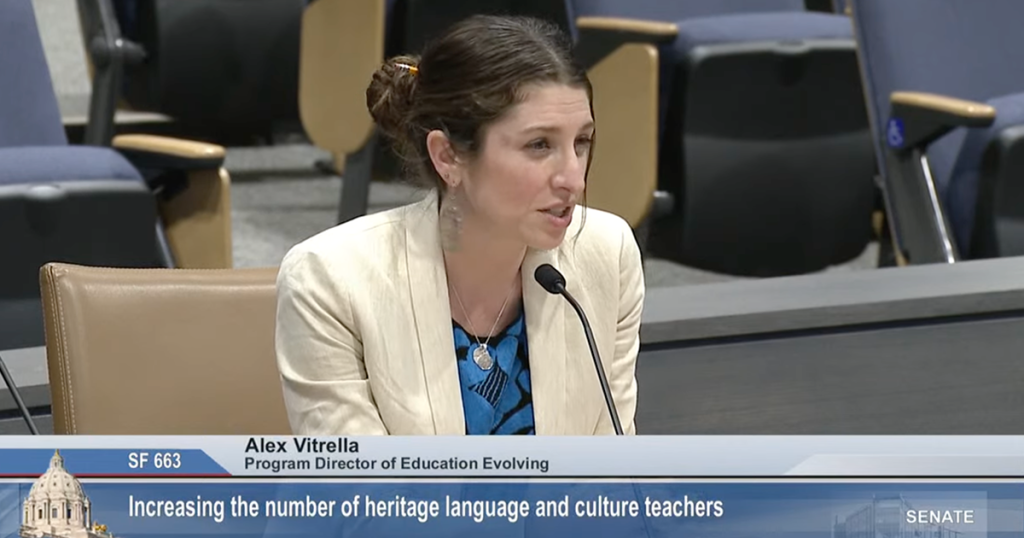Our 2024 policy priorities
A look at a few of the top policy priorities we’re working on in 2024.
View post »New, equitable social studies standards near final approval
Education bill gives MN schools a $2.2 billion funding boost
MN teacher standards get a 21st century update
Ethnic studies bill supports students learning about MN’s diverse cultures
A bill to deepen Minnesota students’ engagement with ethnic studies is moving through the legislature.
View post »MN set to clear roadblocks to heritage language teacher licenses
Legislators look to add new options for teachers to demonstrate competency in their home language.
View post »EE’s 2023 policy priorities
Where we see opportunity in MN education policy this year.
View post »Legislative session is done; what must be back in play next session
No education bill—for now. But these tabled items deserve another chance.
View post »MN education bills de-emphasize seat time, put focus on outcomes
Proposed legislation could spur MN schools toward more innovative, personalized pathways for student learning
View post »At Gatewood Elementary, serving students means looking inward (and heading outside)
A collaborative staff culture lets this MN school discover new ways of meeting student needs
View post »








